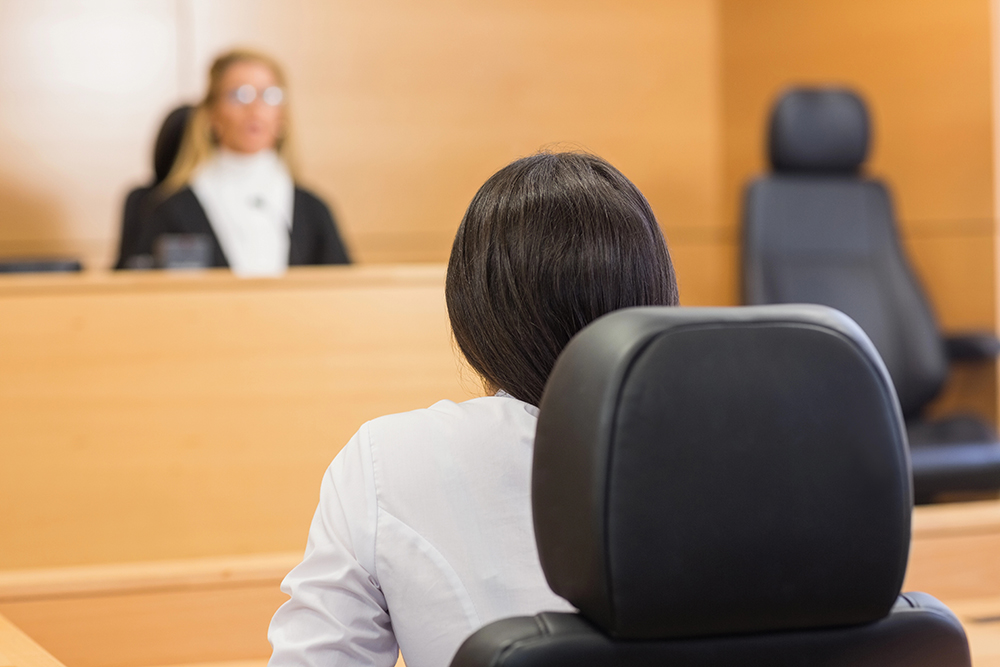Whether you are released from custody on a bail order, or detained in custody, navigating the criminal justice system can be extremely daunting to do alone. For a step-by-step overview, see our guide to Canada’s criminal court process.
There are numerous steps to the life cycle of a criminal charge within the court system. Some of these steps you’ve surely heard of and may even have some familiarity with, while others are likely new to you. If you have just been charged, here is what happens when you are charged with a crime.
One important step is deciding, when applicable, where the trial will take place and whether it will be by judge and jury or by judge alone. How you or your loved one will be tried depends on multiple factors, including the classification of the offence, and, when applicable, elections made by the Crown and the accused.
Election refers to the ability of the Crown and/or the accused to choose which court will have jurisdiction over a criminal charge.

Offence Classification
Criminal offences are classified into three categories.
The classification of the offence will impact the election(s) available:
- Summary: Offences falling into the summary offence category are typically considered less serious. Summary offences carry lower penalties than indictable offences with the maximum penalty generally being two years less a day and a $5,000.00 fine. Summary conviction offences are tried in provincial court by a judge alone (without a jury). Because summary offences are automatically tried in this way, the accused does not make an election.
- Indictable: Indictable offences are more serious and carry higher maximum sentences. Reflecting the more serious nature of the charges, the accused is put to an election, meaning they can choose how they are tried. The precise wording for the accused’s election is set out in section 536(2.1) of the Criminal Code of Canada (the “Code”).
- Hybrid: Hybrid offences are at the discretion of the Crown, meaning that the Crown can choose to try the offence either by indictment or by way of summary conviction. This is the main election that the Crown will make.
Crown election
The primary election made by the prosecution is in the case of hybrid offences.
When an accused is charged with a hybrid offence, the Crown can elect to proceed by way of indictment, or they can elect to proceed summarily.
When the Crown proceeds by way of summary conviction, the matter will be heard before the provincial court and the accused will not have an election.
Accused election
The defence makes an election when the Crown proceeds by indictment. In this instance the defence will be able to choose whether the matter will be heard before the provincial or superior court.
Where the defence elects to have their trial heard before the superior court, they will also have the right to choose whether they would like the trial to be heard before a judge and a jury, or judge alone.
Whether you or your loved one are advised to elect to be tried by judge alone or by judge and jury depends heavily on your unique circumstances. Selecting a mode of trial is an important step in the criminal trial process and should be made in consultation with your experienced criminal defence lawyer.
For more information on the pros and cons of different modes of trial please see our making an election FAQ.
Exceptions to the general election rule
If a crime is punishable by more than five years imprisonment, the prosecution may require that the trial is by judge and jury. This means that absent the prosecution’s consent, you cannot have a trial by judge alone.
The main factor the prosecution must consider is whether a jury trial is in the public’s best interest. The prosecutor’s ability to do this is found in section 568 of the Code:

If an election is available (even if you intend to plead guilty), you must elect to be tried by the court before which you intend to enter the plea.
What is a Plea?
In Canada, prior to proceeding to trial, you will have the opportunity to enter a plea of guilty or not guilty.
Pleading guilty is a formal admission of guilt to the offence charged. In other words, you are consenting to a guilty verdict and waiving the trial process. Conversely, pleading not guilty means the case will progress forward in the criminal justice system. At trial, the Crown will be required to prove guilt beyond a reasonable doubt.
I have already pleaded guilty or not guilty. Can I change my plea?
Generally, if you were unrepresented by counsel and have entered a guilty plea without understanding the nature of the charge or the effect of the plea, you may still be able to change your plea to not guilty before you are sentenced.
Procedurally, a change of plea can be made before sentencing to the same judge who took the plea. However, in order for the change of plea to be granted, you will have to present evidence to the judge that clearly demonstrates that your initial plea was not valid. Factors that may lead to a plea being found invalid include (but are not limited to) the following:
- Inadequate representation by counsel;
- Pressure by a person in authority or threats by a third party to plead guilty;
- Failure of the Crown to disclose evidence before trial; and
- An uninformed or equivocal plea.
Generally speaking, you will not be allowed to change your plea if your evidence suggests that you changed your mind after receiving an unexpected sentence, or that you just changed your mind after unequivocally pled guilty. Rather, the onus will be on you to show that your guilty plea was entered due to some underlying injustice, and that there would be real a miscarriage of justice if you were forced to go forward with your guilty plea. This is not always an easy burden to meet, and your success will depend heavily on your ability to properly enter evidence in favour of your application. Because there are a number of complicated laws and procedures governing when and how evidence can be entered in a court of law, it is in your best interests to hire an experienced criminal defence lawyer to assist you with your application.
By contrast, if you have pled not guilty and your matter has been set for trial, you can change your plea to guilty at any point. Sometimes, if you do not have a strong defence and face a high likelihood of conviction if you go to trial, it may be advantageous for you to plead guilty prior to trial. Even in cases where there is extremely strong evidence against you and you plead guilty, it is still possible to avoid a criminal record by making an application for a conditional discharge or an absolute discharge. To learn more about discharges and how they can allow you to avoid a criminal record, visit our sentencing page.








